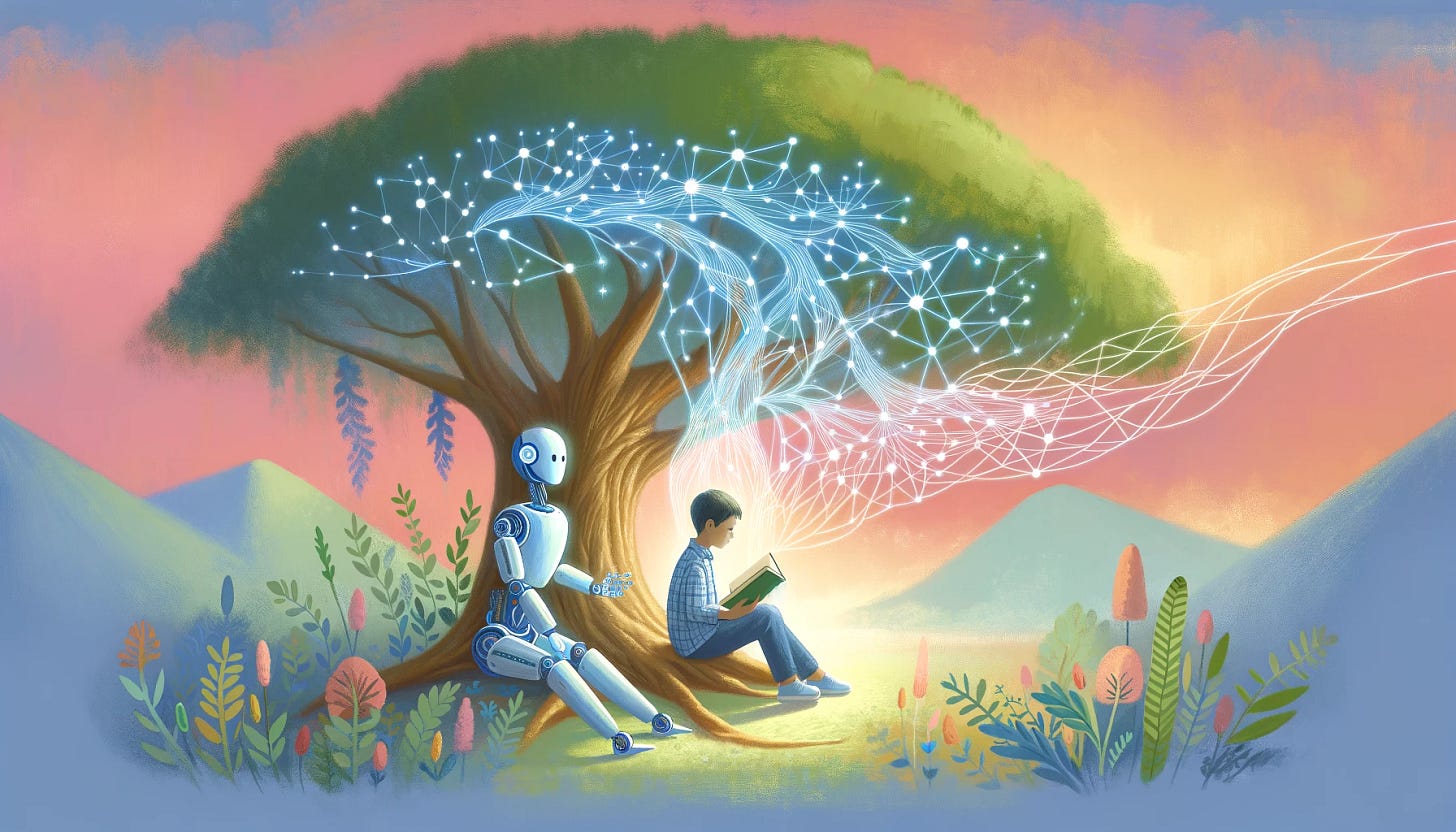Many Large Language Models have evolved beyond the familiar offerings like ChatGPT, Claude, or Gemini, with ReadAgent standing out as particularly fascinating according to a recent paper (1). What sets ReadAgent apart is its groundbreaking approach to enhancing AI's text comprehension capabilities by drawing on human learning strategies. This model segments lengthy texts into manageable parts and then generates concise, summary-like representations known as 'gist memories.' These summaries capture the core essence of the text, enabling the system to maintain an overview of its narrative or argument. This methodology mirrors human reading strategies and highlights the intriguing process of AI learning from human learning strategies.
Reflecting on DeepMind's achievements, the relationship between machine learning and human learning strategies was vividly illustrated in 2016 with the development of AlphaGo. AlphaGo's learning process involved understanding human moves and then advancing its skills by playing against itself, thereby accumulating a vast knowledge base that extended beyond human strategies to a new level of gameplay. This was epitomized by Move 37, where AlphaGo calculated a one-in-ten-thousand chance that a human would make such a move. Similarly, Lee Sedol's brilliant move 78 during the match against DeepMind, described as "God's Touch," not only turned the game around but also earned high praise from AlphaGo itself, marking a significant moment where human ingenuity and machine learning intersected.
This synergy between human and machine learning poses intriguing questions for education. If machines can learn using human strategies, how might this revolutionize educational methodologies? The concept of "Flawed by Design: The Crucial Role of Error-Making AI in Teaching"(2) suggests moving beyond AI that dictates learning in a top-down manner. Instead, we could envision AI assistants that learn in partnership with students, evolving their understanding as students develop theirs. This idea, which might have seemed like science fiction until recently, is increasingly plausible. The rapid advancements in AI research and application are turning what once was imagined into reality, promising an educational landscape where AI supports and enhances learning in ways we are just beginning to explore. Could we, then, see a future where AI not only teaches but learns alongside our students, fostering a truly collaborative learning environment?
Pascal Vallet - February 2024 - In intellectual partnership with OpenAI's GPT engine to enhance knowledge depth, rhetorical polish, and conceptual clarity within a humanistic framework.
(1) Meet Google Deepmind’s ReadAgent: Bridging the Gap Between AI and Human-Like Reading of Vast Documents!, Muhammad Athar Ganaie, February 23, 2024
(2) Flawed by Design: The Crucial Role of Error-Making AI in Teaching, Pascal Vallet, December 28, 2023





